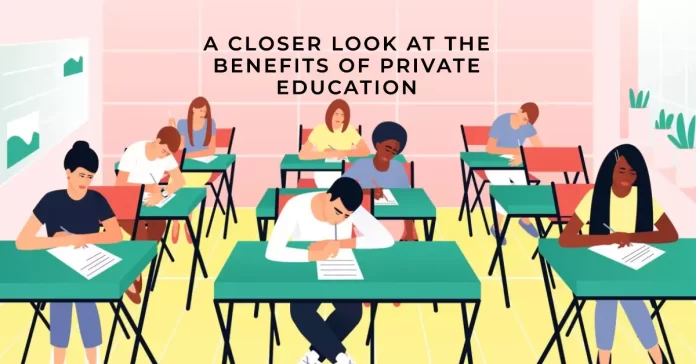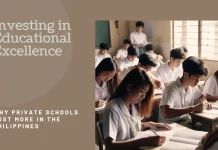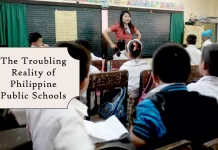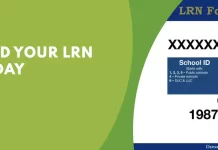Private schools in the Philippines have earned recognition as educational leaders, known for delivering top-quality education that distinguishes them nationally and globally. We will delve into why private schools in the Philippines are regarded as the epitome of quality education, dissecting the distinguishing factors that draw students and parents to them.
A History of Educational Excellence
Private schools in the Philippines have a rich history of educational excellence. Several of these institutions boast a legacy spanning decades, with some enduring for over a century. This longevity speaks to their commitment to maintaining high standards and adapting to the changing educational landscape.
Smaller Class Sizes for Individualized Attention
One key reason private schools excel is their ability to maintain smaller class sizes. It allows for more personalized attention, interactive learning experiences, and a better student-teacher ratio. Smaller class sizes are essential for fostering an environment where students can actively participate, ask questions, and receive the support they need to excel.
Quality Educators and Resources
Private schools in the Philippines prioritize hiring qualified and experienced educators. The faculty often includes teachers with advanced degrees, extensive teaching experience, and a passion for education. Additionally, private schools invest in resources, modern teaching tools, and facilities that enhance the learning experience.
Customized Learning Approaches
Private schools can frequently design their curriculum with more flexibility. These schools can customize their teaching methods to meet student’s unique needs and interests. This individualized approach allows students to explore their strengths and passions and, in turn, excel academically.
Holistic Education
Private schools typically offer a holistic approach to education. They prioritize not just academic achievements but also the development of character, values education, and participation in extracurricular activities. Students are encouraged to participate in sports, arts, and community service, fostering a well-rounded education.
Strong Focus on English Proficiency
English is one of the official languages and the medium of instruction in many private schools in the Philippines. This emphasis on English proficiency equips students with a valuable skill that opens doors to global opportunities.
Robust College Preparation
Private schools typically provide rigorous college preparatory programs. They guide students through the college application, offer test preparation, and ensure graduates are well-equipped for higher education.
International Recognition
Many private schools in the Philippines are recognized internationally for their quality of education. This recognition can be valuable for students considering education abroad.
Conclusion
Private schools in the Philippines have consistently demonstrated their commitment to providing top-notch education. Their focus on smaller class sizes, quality educators, customized learning, and holistic development sets them apart as the pinnacle of quality education in the country. Students and parents who seek excellence in education often find their answers in the private schools of the Philippines.
Frequently Asked Questions (FAQs)
What distinguishes private schools in the Philippines from public schools?
Tuition and private entities typically fund private schools, whereas government funding supports public schools. Smaller class sizes in private schools often mean more personalized attention for students, allowing for a better learning experience.
Are private schools in the Philippines only for the wealthy?
Private schools vary in cost, and while some are expensive, others offer scholarships and financial aid to make quality education accessible to a broader range of students.
Do private schools offer scholarships or financial aid programs?
Many private schools in the Philippines offer scholarships, grants, or financial aid to make quality education more accessible to students.
Is the curriculum in private schools more challenging compared to public schools?
Private schools often possess the flexibility to structure their curriculum, and certain institutions may center on more demanding or specialized educational methods.
Do private schools provide a better student-to-teacher ratio?
Private schools often maintain smaller class sizes, leading to more individualized attention and a better student-to-teacher ratio.
What extracurricular activities do private schools in the Philippines offer?
Extracurricular activities vary by school but may include sports, arts, clubs, and community service projects, providing students with a well-rounded education.
Are private schools in the Philippines recognized internationally?
Some private schools in the Philippines are internationally recognized for their academic excellence and may have established partnerships with overseas institutions.
How do private schools prepare students for college and beyond?
Private schools often offer college preparatory programs and guidance to help students excel academically and in their future careers.
Are private schools in the Philippines religiously affiliated?
Some private schools have religious affiliations, while others are secular. Prospective students can choose schools that align with their beliefs.
Can international students enroll in private schools in the Philippines?
Many private schools in the Philippines welcome international students and may have special programs for them. Admission requirements may vary by school.











